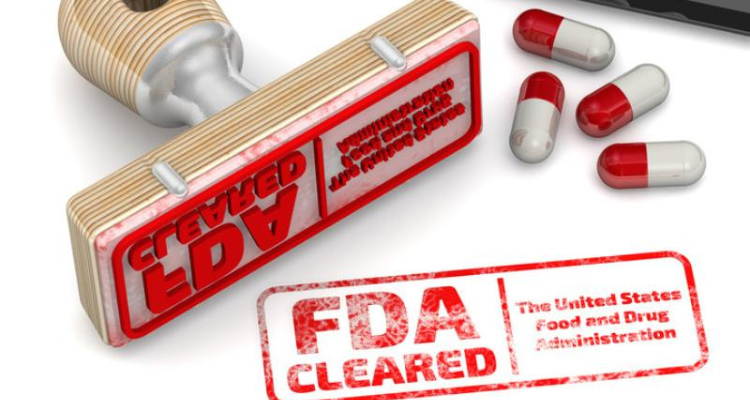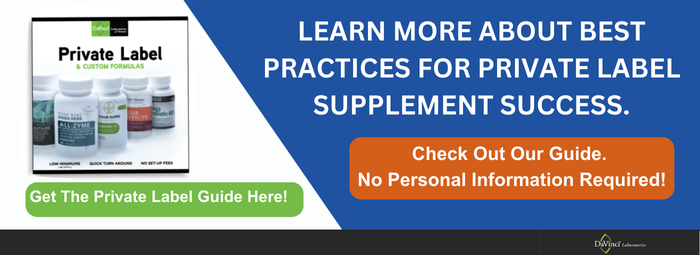
Are your supplements FDA-approved? Not exactly. While the Food and Drug Administration (FDA) defines dietary supplements and regulates labeling and other safety practices, it does not have the authority to approve a particular supplement for use.
Sound confusing? With a quick lesson on the FDA and the Federal Trade Commission (FTC), you’ll have a much clearer understanding of the 152 billion dollar dietary supplement industry.
Rules and regulations in the supplement industry can be hard to wrap your head around. If you’re starting a private label supplement brand, you’ll need some guidance to ensure you follow FDA and FTC guidelines.
what are dietary supplements?
The FDA defines dietary supplements as vitamins, minerals, or other substances intended to supplement health and wellness. These days, they come in a variety of forms, including chewables, capsules, bars, gummies, or liquids.
While scientific research into the effects of various substances, both naturally derived and lab-created, is leading to a quickly growing collection of evidence, only a drug can make the claim of treating, diagnosing, curing, or preventing a disease.
Creating potent dietary supplements and clearly communicating their anticipated effects to consumers requires a skillful balancing act, as companies might be excited to advertise their new products but need to stay within the limits of regulatory boundaries.
Launching your own private label supplements can be challenging if you aren’t aware of dietary supplement regulations and the governing bodies who oversee them. Check out this comprehensive guide to private label supplements to see if this step is right for you.

who's responsible for safe supplements?
As more nutritional products are introduced into the health and wellness marketplace, consumers are becoming more involved. They’re doing their research, investigating the quality testing and ingredient sourcing of their new favorite supplement companies. Today’s customers, particularly Gen Z and millennial buyers, want assurance that their supplement company treats workers fairly and respects the environment.
This burden falls to consumers largely because the FDA does not regulate and approve supplements in the way it does for a drug. For a dietary supplement, the FDA oversees specific components of a product’s manufacturing and labeling, as per the 1994 Dietary Supplement Health and Education Act.
In short, here’s how the FDA can and cannot interfere with the production and sale of nutritional supplements:
- Can’t approve a particular supplement or brand for safety or effectiveness
- Can’t approve a supplement’s label before being sold to the public
- Can’t advise you on dosing or interaction safety
- Can inspect manufacturing facilities
- Can have companies remove labels’ health claims that only drugs can make
- Can keep adverse effect reports and take action to recall dangerous products
role of the ftc
While the FDA’s practical purposes center more on assessing how well a supplement brand is following existing laws related to safety and labeling, the FTC is specifically concerned with how the product is marketed.
Although over half of the US adult population takes supplements regularly, recent chemical analyses have found ingredients that do not match the label on the bottle. Some products contain ingredients not listed, such as fillers or cheaper substitutes, many are not as potent as the concentration advertised, and some even contain toxic contaminants.
The FTC has the primary responsibility of overseeing claims in advertising made by the supplement company in any of its marketing materials. Legally, in the US, only a drug can treat, diagnose, cure, or prevent a disease, so a claim to that effect cannot be made by a dietary supplement.
The FTC’s Truth in Advertising law means that a supplement’s advertisement must not be misleading; claims must be substantiated. While a supplement company is fairly free to develop a new product and bring it to market, the FDA and the FTC will work together to make sure it is produced and advertised according to all existing laws.
truth in labeling
The FDA does not approve individual dietary supplements, nor does it approve individual food brands. Instead, all authorized dietary ingredients must meet strict regulations for their use. After a product hits the shelves, the FDA closely monitors nutritional supplement manufacturing and labeling and inspects companies to ensure compliance.
Supplement manufacturers are responsible for complying with FDA regulations, and partnering with a trusted private label supplement supplier can greatly simplify the process for your practice. For example, DaVinci Laboratories ensures ingredients, potency, and labeling is all within the limits of current regulations in the Truth in Advertising laws.
Despite FDA and FTC regulations and approval, there are ways to cut corners, save on costs, and be generally dishonest as a supplement company. Choosing a brand committed to Truth in Labeling can give consumers and private label supplement customers peace of mind by knowing the label reflects the product and its ingredients are backed up with certificates of analyses and third-party lab testing.










.jpg)






